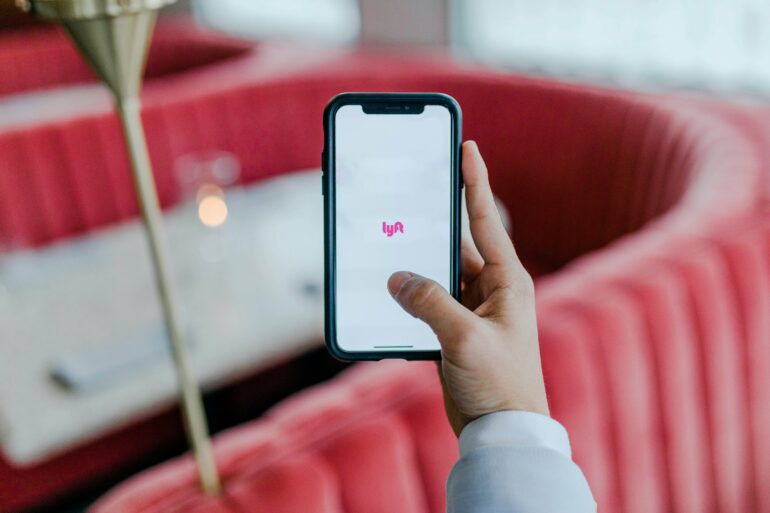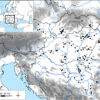Choosing a brand name for a new product or service is one of the most important marketing decisions a company makes. In recent years, brand strategists have recommended companies use unconventional spellings of otherwise familiar words—e.g., “Lyft” rather than “Lift.”
This advice has gained traction in the marketplace, according to an article identifying the practice as the most popular brand naming trend for recent startups.
There are some advantages that come from using an unconventionally spelled brand name, which may explain why companies often select them. However, little is known about how this strategy impacts consumers’ beliefs about the brand, and ultimately, their willingness to support it.
New research from the University of Notre Dame finds that in general, consumers are less likely to support uniquely spelled unfamiliar brands, compared with those that use the conventional spelling of the same word (see examples below).
“‘Choozing’ the Best Spelling: Consumer Response to Unconventionally Spelled Brand Names” is forthcoming in the Journal of Marketing from lead author John Costello, assistant professor of marketing at Notre Dame’s Mendoza College of Business, along with Jesse Walker and Rebecca Walker Reczek from Ohio State University.
“Consumers perceive unconventionally spelled names as a persuasion tactic or a marketing gimmick, leading them to view the brand as less sincere,” said Costello, who researches consumer behavior with a focus on psychological response to marketing communications and prosocial behaviors. “Our studies suggest that while marketers may choose unconventional spellings for new brands with the goal of positively influencing consumers’ perceptions, doing so may backfire.”
However, the study finds there is no backfire effect when a company’s motive for selecting a uniquely spelled name is perceived as sincere.
“When a brand name is crowdsourced by consumers rather than chosen by the company, the backfire effect is eliminated,” Costello said. “We also find unconventionally spelled brand names may even be preferable when consumers want an especially memorable experience, for example, visiting a bar made entirely of ice at a vacation destination like Las Vegas.”
Nearly 3,000 people participated in eight experimental studies, including several that measured real and incentive-compatible consumption behavior. The team used a variety of brand names across studies, both real and fictional, and examined all of the unconventional brand naming varieties shown to be common in the marketplace.
In several of the studies that involved real choices by consumers, the team found that simply using an unconventional spelling of a real word (for example, substituting a “k” for a “c”) decreased its selection by 12-14 percent.
This was also apparent from a study conducted on a Football Friday at Notre Dame, where research assistants posed as brand ambassadors distributing free samples of new-to-market non-alcoholic seltzers.
“We discreetly observed and recorded participants’ seltzer sampling choices to measure the impact of an unconventionally spelled brand name on real product choice,” Costello said. “Consistent with our predictions, participants were almost 14 percent less likely to choose the focal seltzer when the brand was spelled unconventionally.”
So why do so many companies choose intentionally misspelled brand names?
Prior research has shown they are more memorable and make it easier to trademark and find related domain names. They may also help convey the brand is trendy, cool or young.
“A pilot study we conducted with 100 marketing managers found support for all three of these beliefs,” Costello said. “So, it’s a bit surprising to find that the use of an unconventional spelling often backfires, reducing consumers’ likelihood to support the brand.”
The study shows there are both positives and negatives to using unique spellings, including a risk of alienating consumers. It offers important insights for firms launching new brands and marketing agencies that specialize in the naming of brands.
“If companies choose to use unconventional spellings for new brands, they should clearly communicate a sincere naming origin story during introductory marketing campaigns to avoid the backfire effect,” Costello suggested. “They could also communicate this sincerity when designing different brand elements, such as logos, packaging or slogans.”
More information:
John P. Costello et al, EXPRESS: “Choozing” the Best Spelling: Consumer Response to Unconventionally Spelled Brand Names, Journal of Marketing (2023). DOI: 10.1177/00222429231162367
Provided by
University of Notre Dame
Citation:
‘Lyft’ vs. ‘Lift’: Consumers are less likely to support brands with unconventional spellings, study shows (2023, March 7)



